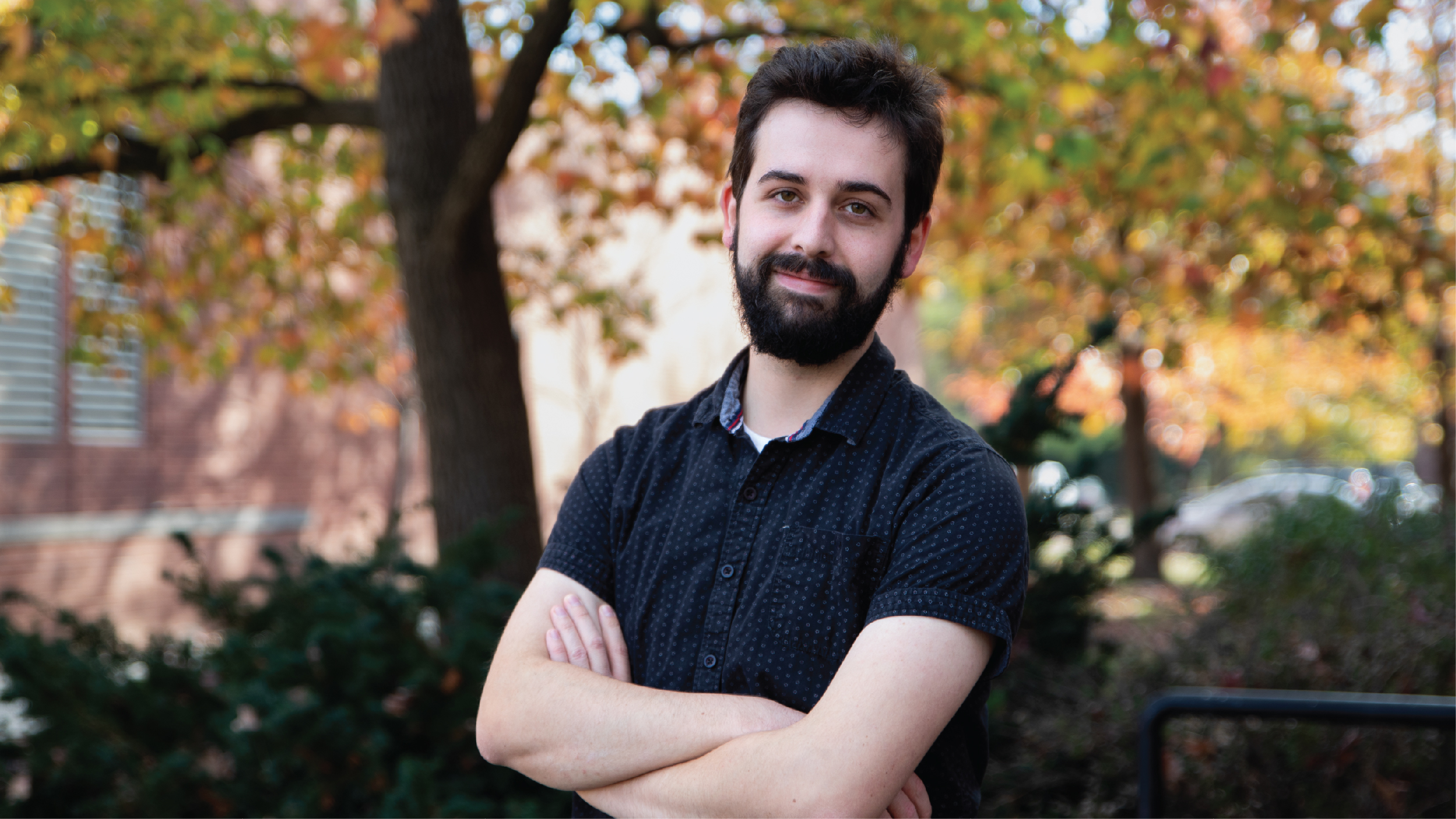Bridging Teaching, Mentorship, and Research
01-30-2024

In the fall of 2019, amid the onset of a global pandemic, Andrew Mularo arrived at Purdue University's Biological Sciences Department, propelled by a journey that began at The Ohio State University. His undergraduate tenure in Ecology & Evolution, with a minor in entomology, laid the foundation for a scholarly odyssey defined by a deep-rooted curiosity about natural populations and their adaptive responses to environmental challenges.
Guided by the mentorship of Dr. Rachelle Adams, a colleague and friend of Dr. Ximena Bernal, his advisor at Purdue, Mularo seamlessly transitioned into a Ph.D. program. His scholarly pursuits orbit around the dynamics of population genetics and spatial ecology, delving into the nuanced interplay between genetic variation and demographic challenges such as habitat fragmentation, climate change, and the proliferation of invasive species.
His research extends to the verdant landscapes of Florida, where he studies invasive herpetofauna. With around 50 non-native reptiles and amphibians thriving amidst Florida's ecosystems, Mularo delves into understanding these interlopers. From the giant Burmese python to the inconspicuous stowaways hidden within international shipments, Mularo's research endeavors shed light on the mechanisms underpinning their introduction, expansion, and ecological ramifications.
Mularo's scholarly contributions extend beyond the confines of his laboratory, manifesting in peer-reviewed publications. His most recent work, chronicled in the Journal of Herpetology, traces the historic trajectory of Florida's invasive anurans, offering insights into the patterns of establishment and spread of these invasive species.
Central to Mularo's academic ethos is his dedicated commitment to teaching and mentorship. He embraces the role of educator, sharing knowledge with students enrolled in courses ranging from upper-division ecology to introductory explorations in ecology & evolution. Teaching, for Mularo, is more than a profession; it's a calling—an opportunity to spark curiosity and foster inquiry among his students.
Reflecting on his journey in education, Mularo emphasizes, "It's a testament to how hardworking my undergraduate students were, but also what I've seen with all of the other undergraduates I've worked with. I don't think I would be where I'm at now if it weren't for the undergraduates."
Mularo's dedication extends beyond the lecture hall, evident in his collaborative efforts with undergraduate students. From honors theses to side projects in Florida, Mularo's mentorship ethos underscores the transformative power of hands-on research and scholarly inquiry.
Purdue's allure lies not only in its academic reputation but also in the collaborative spirit that defines its research culture. The chance to be co-advised by Dr. Andrew DeWoody from Forestry and Natural Resources, was another part of what drew Mularo here. “Interdisciplinary collaboration at Purdue has given me the opportunity to expand my horizons and explore many questions I am interested in, but cannot fit into my dissertation directly” he said. Mularo continues, “Ultimately, I think it strengthens the portfolio of graduate students who take advantage of interdisciplinary collaborations.”
Beyond academia, his journey was shaped by his formative experiences in his hometown of Cleveland. As a teenager and high school student, Mularo immersed himself in the parks and zoo system, where he volunteered and eventually worked. These early experiences served as an ode to environmental stewardship and deepened his engagement with nature as he was able to take part in outreach and education at the zoo.
Mularo's story serves as a reminder of the profound impact of teaching, mentorship, and the relentless pursuit of knowledge. In the dynamic realm of academia, Andrew Mularo's dedication to education and research stands as a testament to the enduring quest for understanding and enlightenment.
About the Department of Biological Sciences at Purdue University
Purdue Biological Sciences is the largest department in the Life Sciences at Purdue University. We are dedicated to pioneering scientific discoveries and transformative education at the cutting edge of innovation. From molecules to cells, from tissues to organisms, from populations to ecosystems - we bring together multiple perspectives, integrating across biological scales to advance our understanding of life and tackle the world’s most pressing challenges. Learn more at bio.purdue.edu/.
Writer – Alisha Referda, Communications Specialist